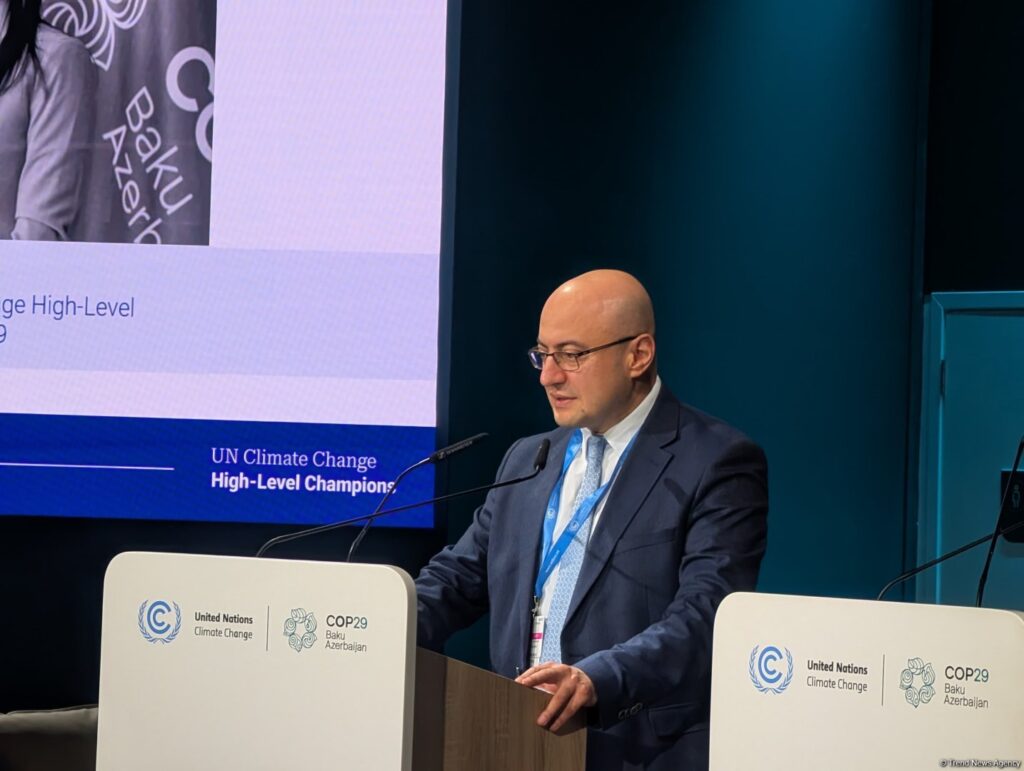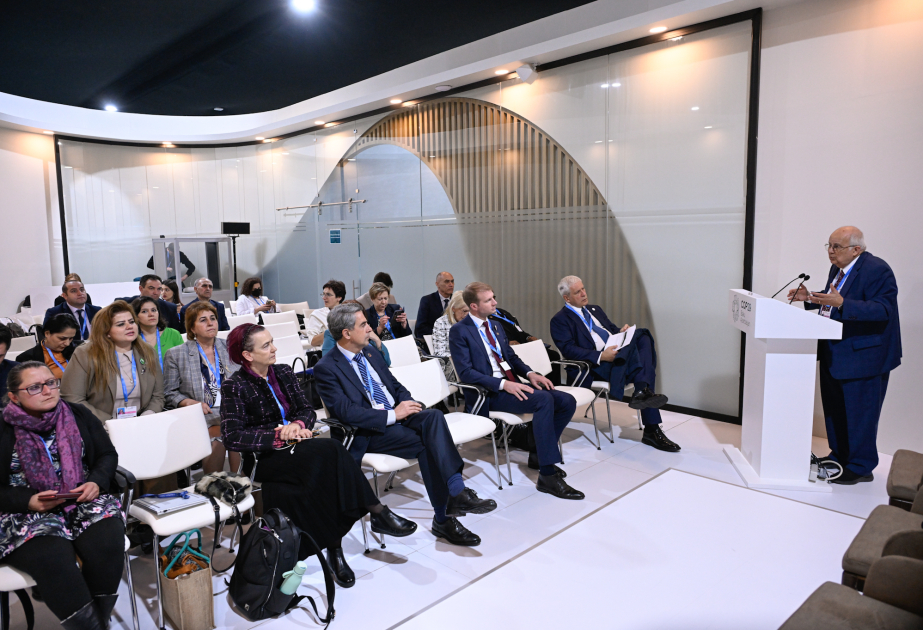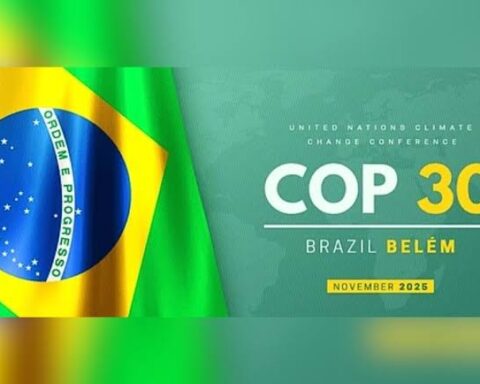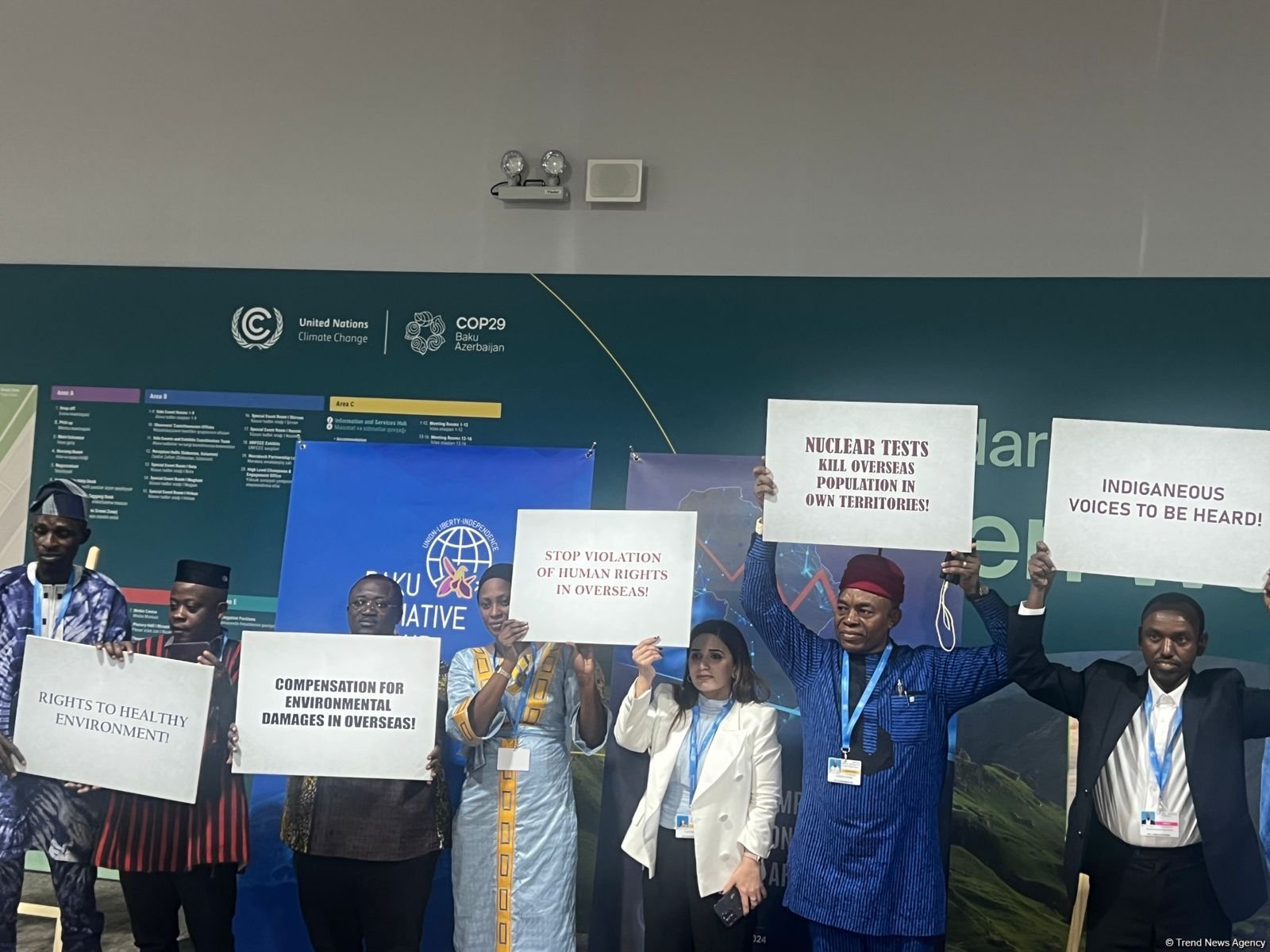Representatives from international organizations, multilateral development banks, and global climate funds have endorsed the Baku Initiative on Human Development for Climate Resilience, marking a significant milestone at the ongoing COP29 in Baku, Azerbaijan.
This endorsement emerged from a High-Level Meeting convened by the COP29 Presidency, aimed at addressing human development in the context of climate action.
For the first time, interconnected issues such as education, health, green jobs, and youth engagement were tackled under a unified framework, supported by financing and multifaceted policy approaches.
The Baku Initiative seeks to strengthen cooperation across sectors and bridge global efforts to address climate change impacts on human development.

By bringing together diverse actors, the initiative aims to enhance climate financing and integrate human development into strategies for building resilience against climate change.
Highlighting the importance of human development in climate action, the meeting concluded with the adoption of the Baku Guiding Principles for Human Development for Climate Resilience.
These principles emphasize the need for healthier, better-educated, and more skilled populations capable of contributing to climate solutions and adapting to their impacts.
According to a Senior negotiator and co-leader of the COP29 Presidency Action Agenda initiative group Elmar Mammadov, the initiative underscores the inextricable link between human development and climate resilience.
“Today, we launched two key initiatives that will serve as the foundation for activities within the framework of Human Capital Development Day. These initiatives are supported by UNESCO, WHO, ILO, and other UN agencies, as well as three multilateral development banks: the Asian Development Bank and the Islamic Development Bank, and three funds – the Global Fund, the Green Climate Fund, and the Adaptation Fund.
“We have also adopted a joint statement on the Baku Initiative for Human Capital Development to strengthen climate resilience,”,he said.
According to him, in the process of developing the initiatives and action plan, the team conducted comprehensive consultations.
“We aimed to make this process as inclusive and transparent as possible. As part of these consultations, we interacted not only with the participants but also with other stakeholders, including representatives of civil society, think tanks, multilateral development banks, international organizations, and other key actors,” he added.
Unlike previous COPs that addressed human development-related issues in silos, the Baku Initiative represents a comprehensive approach, signaling a shift toward inclusive climate solutions that prioritize the well-being of populations, particularly in vulnerable regions such as Africa.
The endorsement of the Baku Initiative and its guiding principles reflects the growing recognition that tackling climate change requires more than environmental solutions, it also requires an investment in people.
By embedding human development into climate strategies, COP29 charts a path toward a more equitable and sustainable future for all.
By Dare Akogun








